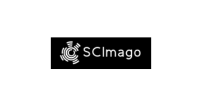BACTERIOCINOGENIC POTENTIAL OF LACTIC ACID BACTERIA ISOLATED FROM ARTISANAL COLONIAL TYPE - CHEESE
DOI:
https://doi.org/10.5380/avs.v25i1.68261Palavras-chave:
antimicrobial compounds, autochthonous microbiota, bacteriocins, food safetyResumo
Autochthonous microbiota from artisanal cheeses is predominantly composed of lactic acid bacteria (LAB), which are able to produce antimicrobial compounds, such as bacteriocins, suggesting their application in food biopreservation. Knowledge about LAB growth and bacteriocin production during food production and conservation is essential to determine their use. In this way, the study aimed at isolating bacteriocinogenic LAB from twenty-one artisanal cheeses from the western region of Parana state, Brazil, determining the best conditions for growth and bacteriocin production (25°C, 30°C, and 37°C/24h); bacteriocin stability under different ranges of pH (2, 4, 6, 8, and 10 for 2h) and temperature (60oC/2h; 80oC/2h; 121oC/15min). Their activity against different target microorganisms was also evaluated. A total of 34 LAB strains presented characteristics compatible with bacteriocin production. Most of them presented better results for bacteriocin production when cultured at 25ºC and 30ºC. Bacteriocins remained active against L. monocytogenes when exposed from pH 4 to 8 and a wide temperature range; some bacteriocins were even resistant to sterilization temperatures. Bacteriocins produced were able to inhibit spoilage and pathogenic microorganisms, such as L. monocytogenes, B. cereus, and P. fluorescens. These results indicated that isolated bacteriocinogenic LAB present potential to be used as food biopreservatives.
Downloads
Publicado
Como Citar
Edição
Seção
Licença
Autores que publicam nesta revista concordam com os seguintes termos:
- Autores mantém os direitos autorais e concedem à revista o direito de primeira publicação, com o trabalho simultaneamente licenciado sob a Creative Commons - Atribuição 4.0 Internacional que permite o compartilhamento do trabalho com reconhecimento da autoria e publicação inicial nesta revista.
- Autores têm autorização para assumir contratos adicionais separadamente, para distribuição não-exclusiva da versão do trabalho publicada nesta revista (ex.: publicar em repositório institucional ou como capítulo de livro), com reconhecimento de autoria e publicação inicial nesta revista.
- Autores têm permissão e são estimulados a publicar e distribuir seu trabalho online (ex.: em repositórios institucionais ou na sua página pessoal) a qualquer ponto antes ou durante o processo editorial, já que isso pode gerar alterações produtivas, bem como aumentar o impacto e a citação do trabalho publicado.













